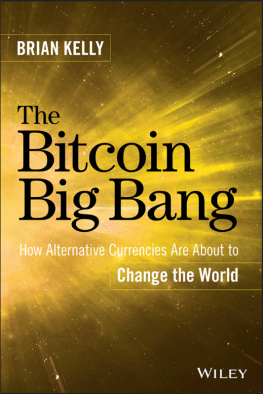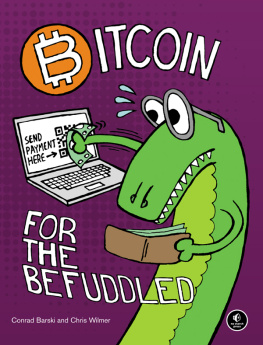Copyright 2014 by Jose Pagliery
No part of this publication may be reproduced, stored in a retrieval system, or transmitted in any form by any means, electronic, mechanical, photocopying, or otherwise, without the prior written permission of the publisher, Triumph Books LLC, 814 North Franklin Street, Chicago, Illinois 60610.
This book is available in quantity at special discounts for your group or organization. For further information, contact:
Triumph Books LLC
814 North Franklin Street
Chicago, Illinois 60610
(312) 337-0747
www.triumphbooks.com
Printed in U.S.A.
ISBN: 978-1-62937-036-1
Book design by Alex Lubertozzi
Photo of Sapan Shah courtesy of Christa Neu, Lehigh University.
Photo of Josh Arias courtesy of Studio Moirae Photography.
To my wife, Bridget, who inspires me, guides me,
and always shows me there is a kinder, more noble way
We have progressively abandoned that freedom in economic affairs without which personal and political freedom has never existed in the past.
Friedrich Hayek
Contents
Appendix
Bitcoin: A Peer-to-Peer Electronic Cash System
Acknowledgments
I AM grateful to those within the Bitcoin community who were willing to share their stories with me. Remain true to your ideals. They are rooted in a desire for a better, freer world.
To my editor at CNNMoney, David Goldman, thank you for encouraging quality journalism. To CNNMoneys executive editor, Lex Haris, thank you for always pushing for clarity in my writing. And thanks to CNN for approving this. I am indebted to those at Triumph for this opportunity. Thanks to my friends who reviewed my writing and tested my logic.
I am grateful to my sister and mother for being models of strength. Mike, you pull me up when I fall. Sam Frade, you are my Doc Brown.
CHAPTER 1
Baby Steps
IT WAS an otherwise quiet news day in February when word got out that the niche online trading site Mt.Gox (mtgox.com) went offline. The difficulty for me then, as a technology and business reporter at CNNMoney, was to explain to the average reader how a website that few had ever heard of suddenly wiped out the savings of people around the globe. The loss totaled nearly $400 million at the time. And it was all in a currency no one understood, no less.
That was, for many people, the first time theyd heard of Bitcoin. The circumstances were less than ideal. But the occasion was an appropriate wake-up call.
The world was finally paying attention to the term digital currency. Put simply, its electronic moneynothing more than bits in a computer, be it your laptop, smartphone, or some far-off computer server in a chilly, climate-controlled data center.
Make no mistake. Its real money. But its unlike anything weve ever seen. Although it has similar properties to the paper bills we all carry in our wallets, a digital currency like Bitcoin is not printed by a recognized authority like a government that determines how many are put into public circulation. Nor is it valued in a traditional sense like gold, whose limited supply is slowly extracted from the earth at great labor and expense.
You cant feel or touch bitcoins. And its precisely that aspect of a digital currency that polarizes people. Bitcoins most idealistic supporters celebrate it as something akin to a monetary messiah, a means of exchange that will let you buy anything, anytime without nasty roadblocks, like banks or law enforcement. On the other end of the spectrum are the conservative cynics who think Bitcoin is bogus, nothing more than a moneymaking house of cards thats bound to fall as soon as the world wises up to the fact that zeros and ones on a computer are quite worthless.
Theyre both wrong. Bitcoin wont upend the worlds superpowersnot entirely, anyway. But its already leaving a lasting impact, because it represents a whole new way of thinking about money. Therein lies Bitcoins promise. It has the potential to transform something thats a pivotal element of human historyshaking us to our very core.
To understand the significance of something like Bitcoin, its worth doing a quick review of history. While economists and anthropologists disagree about the origin of money, this much is certain: Its as old as human civilization. Money had already appeared by the time humans started jotting down the earliest surviving accounts of their actions in ancient Mesopotamia around 3100 BCE . At the time, it wasnt a medium of exchange in the form of gold coins or paper bills, though. It was merely a ledger of accounts, a running tally of who owes whom. But for all intents and purposes, the system of debt and credit served as a way to trade.
Some thinkers are inclined to say that money predates even government.of capitalism, and Austrian economist Carl Menger. Before the appearance of money, perhaps we bartered for goods. But barteringor the credit system of ancient Mesopotamiais a terribly inefficient way to trade.
The turning point came around 2000 BCE , when money appeared in a fashion more similar to what we know today. People in Egypt and Mesopotamia used receipts that showed how much grain they kept stored in temples. More than a thousand years later, metal coins gained ground in nearby areas. It eventually became too much of a hassle to lug around heavy sacks of misshapen bronze coins, so people everywhere opted instead for paper currency that represented value stored elsewhere, such as a bank. In China, they first appeared with merchants during the Tang Dynasty around 900 CE . At about the same time in the medieval Islamic world, checks and promissory notes gained in popularity. Europe was the late bloomer, with paper currency making its first appearance in Sweden in 1661.
But thats just about where the story of monetary innovation ends. Surprising and disappointing, isnt it? Since then, governments have strengthened their control over the money-printing process, and countries continue to struggle with the fact that paper notes have no intrinsic value. This makes them susceptible to inflation, as occurs when a government prints extra bills to pay off its debts. That devalues its currency relative to others and impoverishes its people.
Meanwhile, banking has evolved many times over. The concept of a bank as we know it began in Italy during the Renaissance as a simple provider of bills of exchange, financing trade. Over time, banking has morphed to include loans, quick transfers of wealth across great distances, as well as a means of investing and consulting on those very investments. Over the centuries, banking has squeezed itself into the world of money, in the United States becoming the first and only entity to receive newly printed government dollars. Banks have placed themselves squarely between the people who earn money and the governments that issue it. They have made themselves necessary middlemen.
Indeed, in the modern era, banks have become synonymous with money and necessary for a prosperous life. Have you ever tried to conduct an expensive transaction without a bank? In most cases youll get rejected or worsea nasty glare from someone assuming youre up to no good. Or have you ever tried to receive steady pay for work in cash? Professionals will most likely receive a paycheck that needs to be cashed out at a financial institution, and some employers even make direct bank deposits mandatory. But think about what that does to society at large. It puts banks at the top of the social pyramid. Even though money is a necessary part of human interaction, something as ingrained in our consciousness as the rule of law, there exists an entity that retains firm control of it.
Next page

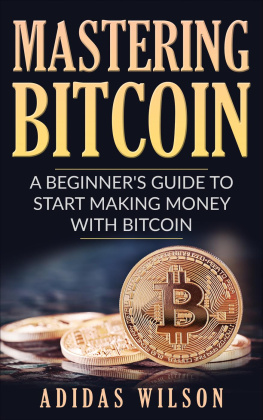
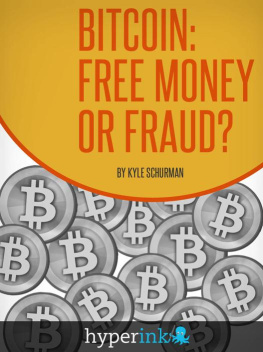
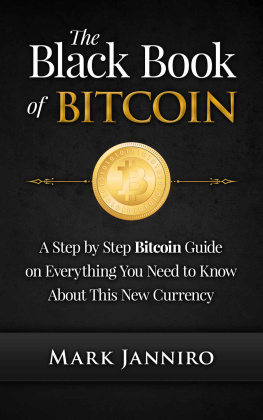
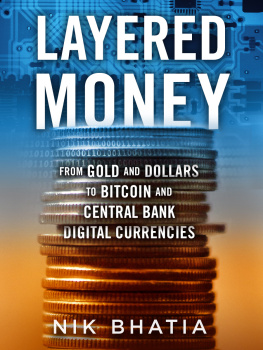

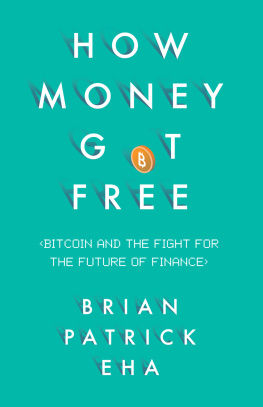
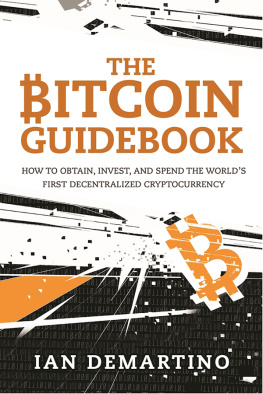
![Brian Kelly [Brian Kelly] - The Bitcoin Big Bang: How Alternative Currencies Are About to Change the World](/uploads/posts/book/119681/thumbs/brian-kelly-brian-kelly-the-bitcoin-big-bang.jpg)
